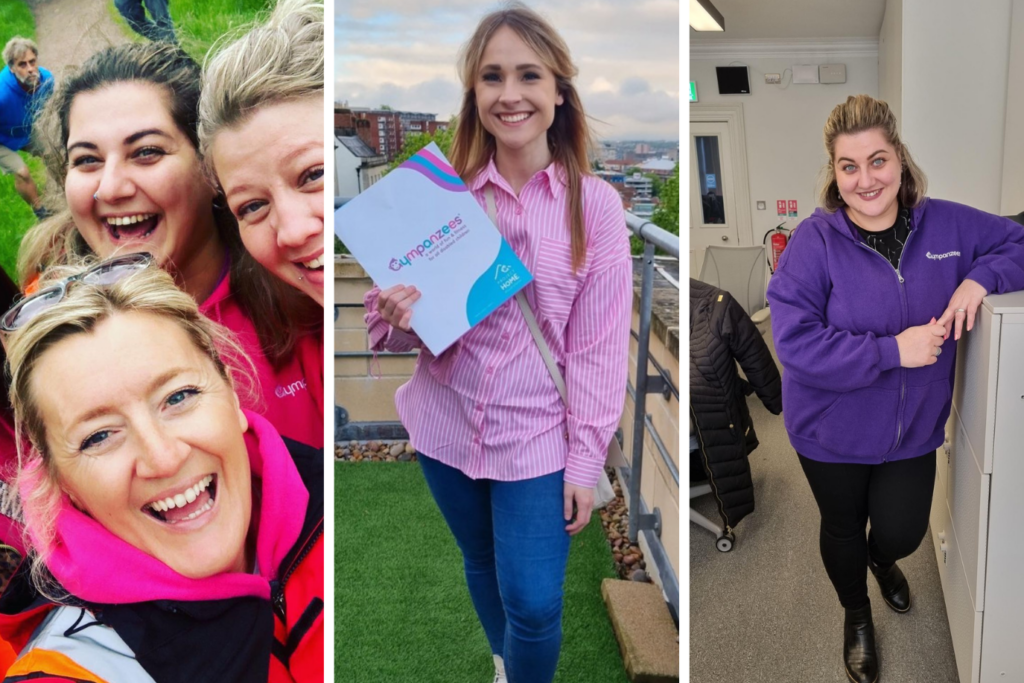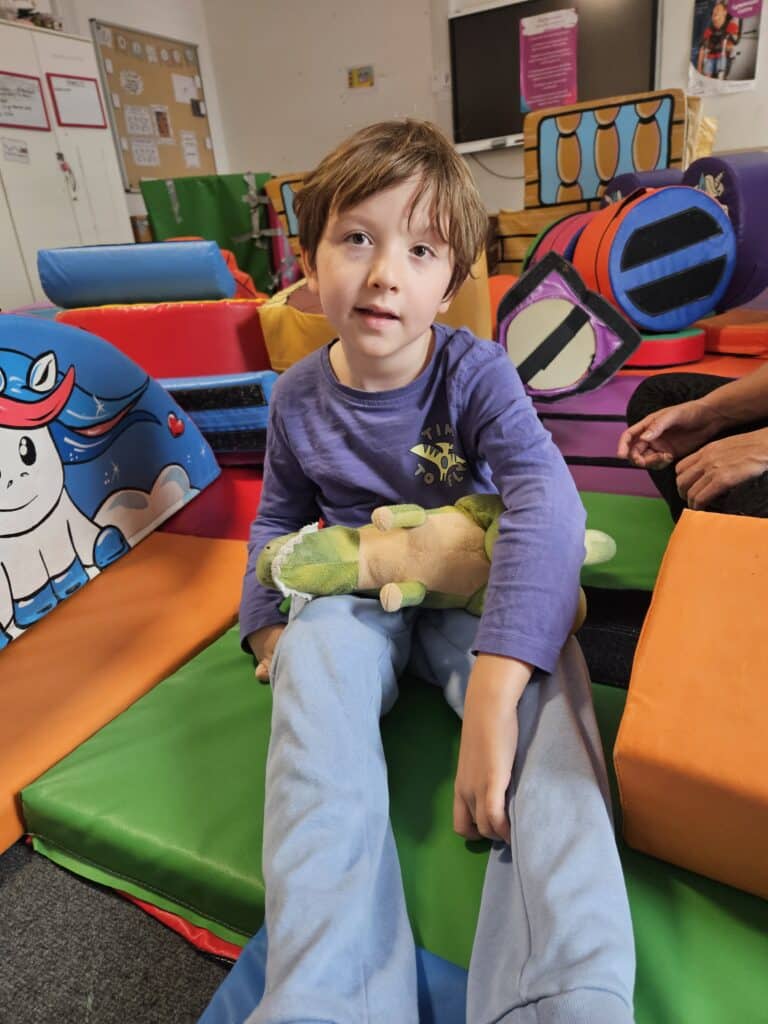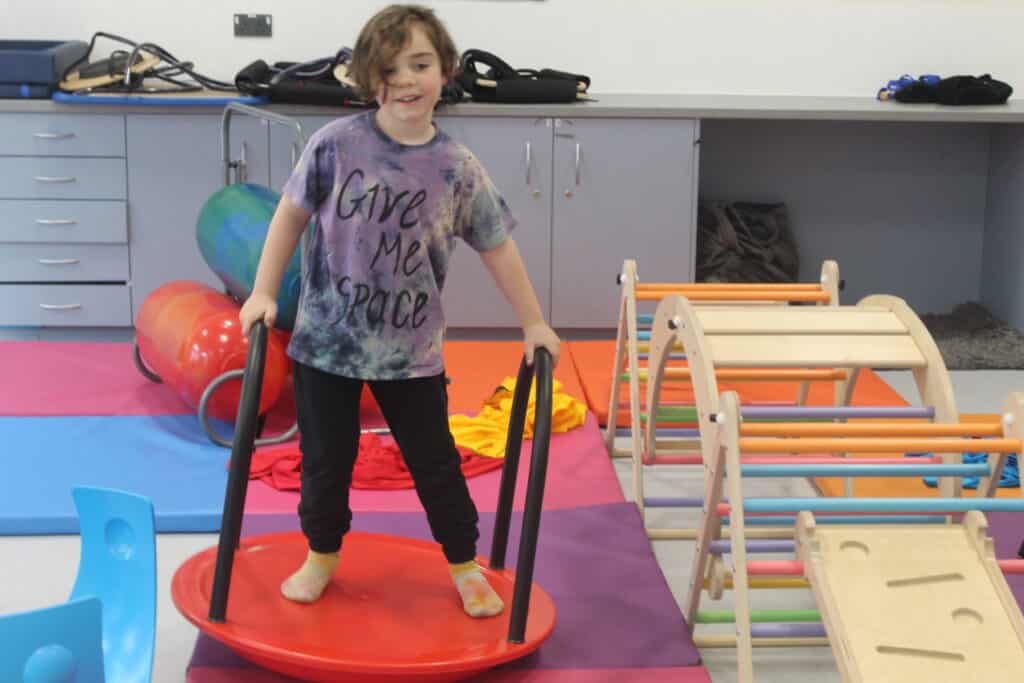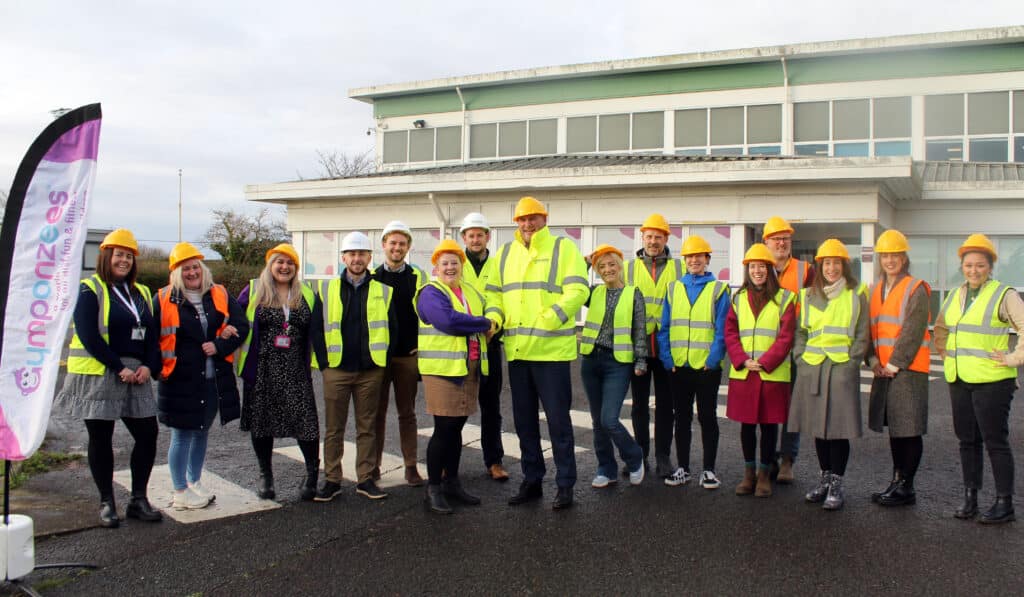This Neurodiversity Celebration Week we spoke to the 3 members of the Gympanzees team who are neurodivergent about their nuerodiversity, how it affects them at work, and how it helps them relate to the families that use Gympanzees.
Tell us about your neurodiversity/diagnosis
Jen: Last year we went through the diagnosis process for my son who is autistic, so it’s safe to say I have been completely immersed in learning everything there is to know about neurodiversity over the past few years. I felt huge empathy towards neurodivergent people to the point where I began relating a lot more to their experiences rather than those of neurotypical people. Armed with this knowledge, it dawned on me that actually, maybe I wasn’t that different to my son. I went through my assessment in December 2022, where I was diagnosed with ADHD.
Kim: My dyspraxia was picked up when I was 6 years old by my teacher after noticing the way I struggled to hold a pen and take part in physical activity. My parents were initially surprised but then it made sense to them why their daughter still had to go down the stairs sat down. More recently I discovered that verbal dyspraxia and being able to articulate thoughts is an element of being dyspraxic, this made a lot more sense to me, being labelled as ‘shy’ as a child when I knew I wasn’t shy, I just couldn’t get my words out!
Leila: I grew up in the late 80s in the USSR and neurodiversity wasn’t “a thing”. Therefore, my neurodiversity is undiagnosed, like with many other women/girls. I have suspected ADHD/Autism but was only aware of it after I had my son, as he is also neurodivergent.
How does your neurodiversity affect you at work?
Jen: Being brutally honest, returning to the workplace has shone a spotlight on all the things I struggle with as a person with ADHD which is what led me to be assessed. Prioritising tasks and workloads, effectively managing my time, and sitting in a quiet office when every fibre of my being craves music and bustle to get stuff done. Forgetting verbal requests colleagues have asked me just 5 mins before, tackling spreadsheets that make me cross-eyed just looking at them, and interacting with corporate professionals whilst my imposter syndrome shouts loud in my ear that I shouldn’t be there and I’m not worthy. I hate that one!
Kim: As a neurodivergent person I tend to overcompensate/mask and because of that you can build up a lot of defences, such as perfectionism and rejection sensitivity dysphoria (RSD). This can make it difficult to receive critiques and separate yourself from the work, everything feels personal. Developing techniques to separate myself from feedback and learning that ‘perfect is the enemy of good’ has been an absolute game-changer (even if it’s still difficult at times) it’s allowed me to take risks and be more creative.
Leila: Sometimes it can be hard, I struggle to concentrate and can feel easily overwhelmed. I am very sensitive to anything that doesn’t go to plan in my mind, so this can easily throw me out of a loop. I generally struggle to change routines, but am surprisingly spontaneous with new things and will say yes to anything.
What strengths do you think you have as a result of being neurodivergent?
Jen: As a person with ADHD, I now understand that my brain enables me to think up creative, exciting ideas and loves to ask lots of questions to really understand something. I can fully relate to many of our families, as I too, experience those same things. I am sensitive and funny and love to make people feel good about themselves.
Kim: Being dyspraxic has helped make me more determined as a person, it took me 8 years between my first driving lesson and passing my test, but I did it (albeit in an automatic car but take the help!). Having verbal dyspraxia has also made me very expressive in the way I write and has brought attention to detail that has only helped me in my marketing.
Leila: Because of my neurodiversity and ability to hyperfocus I can zone in on a task. I am also incredibly passionate about inclusive language and the language used around disability. This hyperfocus is just one example of the ways I can support the marketing department at Gympanzees.
What changes/adaptions have been made to accommodate your neurodiversity at work?
Jen: I’m so lucky to work with a team that embraces my ADHD and will happily make changes where needs be. For me, sitting and listening to a YouTube video about how to use Excel is just like listening to white noise. My amazing manager made me a step-by-step video to allow my ADHD brain to process those bitesize pieces of information. Having colleagues that are open to change is everything and here at Gympanzees, we are blessed to have just that. A supportive network of people where your well-being is just as important as the results you are producing.
Kim: Being able to talk about my neurodiversity in an office setting and ask for accommodations feel equally bizarre and wonderful. It feels exciting to know this is the way the world is heading for many workplaces, not just Gympanzees. However, I know as an individual I also have to lead on those accommodations, you need to communicate your needs for your employer to be able to make those changes.
Leila: Working at Gympanzees is very flexible and fits in with my day-to-day life, which is so helpful especially being a parent carer. My colleagues don’t judge and are supportive if I find things difficult. They are very patient with me and that makes a huge difference.
How does it feel knowing we are providing a space for neurodivergent children and young people to be themselves?
Jen: Knowing that Gympanzees is paving the way for the little Jens of this world to embrace their amazing neurodivergent selves and they will have a place to go where they can feel happy and relaxed fills me with pride. We are making a real impact on the families’ lives that come and visit us and I’m so happy to be a part of something that encourages people to be unapologetically themselves.
Kim: I think back to my struggles as a dyspraxic very anxious child, and I think a centre like Gympanzees would have made a huge difference. From being able to practice fine motor skills to being able to regulate my emotions. The possibilities a permanent Gympanzees could bring for thousands of disabled children and young people gives me goosebumps!
Leila: If Gympanzees were around when I was growing up, it would have definitely helped to release energy and would have helped with self-regulation. I’m delighted we can provide that for the children and young people that visit us.
Neurodiversity Celebration Week runs from the 13th to the 19th March. Neurodiversity is an umbrella term and includes autism, ADHD, Tourette’s syndrome, dyspraxia, dyscalculia, dyslexia and dysgraphia. You can find out more about neurodiversity awareness week here
Or support our work providing fun and fitness for neurodiverse children and young people by making a donation or signing up to take part in a challenge!












